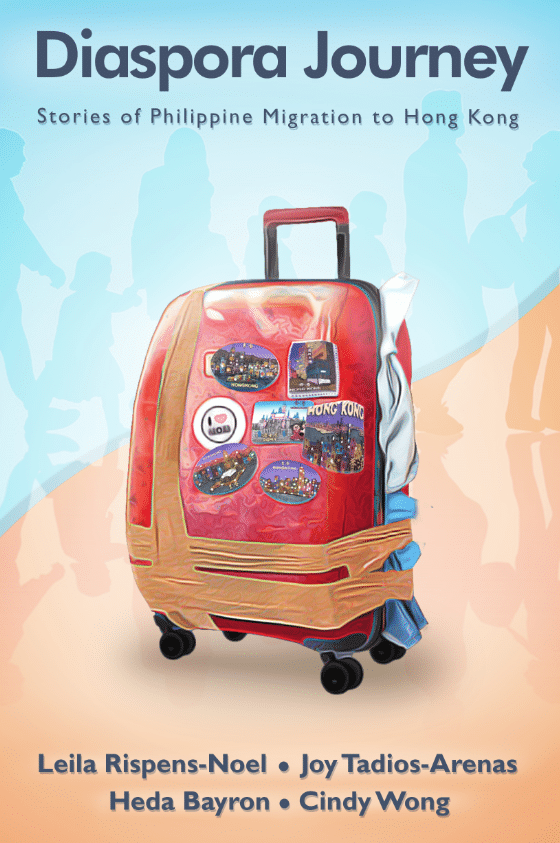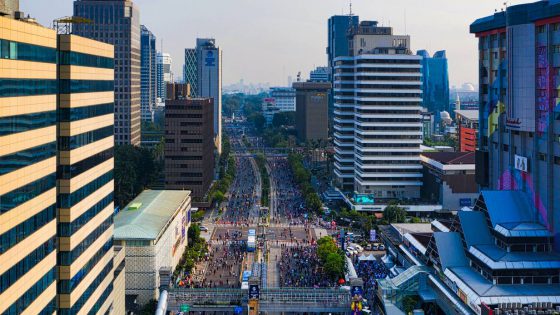My first take on migration research in 2004 was on retirement migration of well-off Asian nationals to the Philippines, particularly Japanese retirees. It shifted to migration and development when I moved to Hong Kong in 2006, where I worked as a research coordinator in a five-year project on women’s empowerment funded by the Department for International Development (DFID), before teaching at the City University of Hong Kong. Majority of our projects dealt with issues and concerns of migrant domestic workers (MDWs) in Hong Kong.
When the project was about to end, I overheard Filipino MDWs talking about their loans and repayment difficulties. Those conversations made an impact on me and became my motivation to prepare a doctoral research proposal in 2010.
In understanding the link of migration on socio-economic development, it is not uncommon for financial remittances to take center stage. Multilateral agencies and governments monitor the success of migration mostly through increase in remittance. According to the World Bank, remittances to developing countries have grown to US$550 billion in 2019 from just US$300 billion a decade ago. This is way more than the foreign direct investments or official development assistance received by developing countries.
Although remittance is the largest source of external financing, less attention was given to how loan-taking has funded remittances back home. In exploring deeper into the transnational financial management of migrant workers in Hong Kong, Singapore, and Taiwan, I found out that loans or debts are not openly discussed. It was not popular for remittances to be linked to indebtedness, and its huge impact on how migrants could effectively manage their families or even influence major decisions back home. This started my journey in ‘unpacking’ remittances—understanding it not as a standalone financial recourse but also looking at its source and utilization, especially from and by entrepreneurial women migrants.
Problems in loan-taking and indebtedness have been reported by the mainstream media in Hong Kong as early as the 1990s. In 1994, thousands of passports were seized from lending companies. This happened again in 2019 when the police confiscated a record of 1,400 passports from a single lending company. Some theft, suicide, or contract termination cases related to loans were also published in Hong Kong newspapers in the past decade.
The semi-financial inclusion of migrant workers allows lending companies, not mainstream banks, to provide access to credit. Unlike mainstream banks that give only an annual 2% rate, these lending companies can legally charge up to 59% per annum in interest rates, and loan sharks charge as high as 100%. MDWs could borrow as much as eight to 12 times their monthly salary with a repayment of almost 75% of their monthly salary—a far cry from Singapore where the government set a loan limit for domestic workers. The problem arises when calamities and family emergencies happen, which is not surprising in a home country that attracts more than 20 typhoons in a year and where proper health care services are not free.
But all this is expected. Most of our modern-day heroes deployed in Hong Kong are not financially educated. Motivated to provide a good future for their kids, these MDWs are baited to the easy and unregulated access to credit without proper information and warnings about its trappings.
In the 2018 study of organizations Experian and Enrich HK, 83% of surveyed MDWs in Hong Kong were in debt, the highest in Asia-Pacific region. A number of non-government organizations like WIMLER HK, Enrich HK, and CARD Hong Kong, in partnership with the Philippine Consulate and various institutions, continue to work to help address this. But covering a vast majority of MDWs with strict employment conditions is not easy, and it is more effective if done prior to their deployment in Hong Kong.
One thing that struck me was that, in many instances, migrants consider loans as a ‘friend’. In the words of a migrant mother I spoke to, “it was some[one] they could rely on.” With a minimum wage of HK$4,630 (around PHP30,000), most of it goes to the daily needs of the family. Funding dreams and other needs beyond that amount is a different story. There has to be a bigger resource to tap, hence the loans.
I have personally met the beneficiaries and saw the impacts of these loans: sons and daughters enrolled in private schools who went on to become medical doctors and engineers, big concrete houses, elderly people that survived after an expensive medical procedure, flourishing businesses and successful migration journeys of family members in other countries. Interestingly, the majority of these decisions are upon the strict instruction of women migrants who finally have a voice in the household.While there are loans taken by MDWs to fund their (extravagance) and failed businesses, most loans are taken for productive investments, with more than 65% of loans taken unequivocally, as per my previous research. This is where both opportunities and vulnerabilities weigh in—the reason that the focus on remittances and development should not be dissociated from issues on loan-taking and indebtedness, especially in the case of Hong Kong.
I confidently shared in an interview in May 2020 for the South China Morning Post article, that remittances from developed Asian countries will not waver. The world had no idea then that the pandemic will last for more than a year. In that same month, the World Bank released a report predicting a 20% decline in remittances to developing countries. Yes, remittances decreased but not as sharply as the World Bank had predicted. And it did not apply to Hong Kong remittances — the total amount increased 2.4% to US$821 million from land-based and sea-based workers in spite of the 5,000 MDWs who lost their jobs last year. This proves once again how resilient migrant remittances are even amid a pandemic.
But what we must also pay closer attention to is the number of overseas workers falling into the hands of predatory lenders. Before we glorify the benefits of remittances, we must first unveil the stories behind these remittances to find out the truths as perceived and weaved by the migrants themselves. Doing so will help give light in terms of understanding the sacrifices and things migrant workers have to go through to send for the needs and dreams back home.

*This is an excerpt from Diaspora Journey – Stories of Philippine Migration to Hong Kong compiled and edited by Leila Rispens-Noel, Joy Tadios-Arenas, Heda Bayron, and Cindy Wong. If you are from Hong Kong, you may pre-order the book through this link. The book will be available on Amazon Kindle and 8Letters Bookstore soon. Follow us on Facebook for more details.
Joy Tadios-Arenas is a researcher, educator, financial inclusion advocate, and a mother of three daughters. She co-founded Good Financial Limited in 2018, a company that redesigns and reinvents financial services for migrant workers in Hong Kong. Follow her on LinkedIn.



















